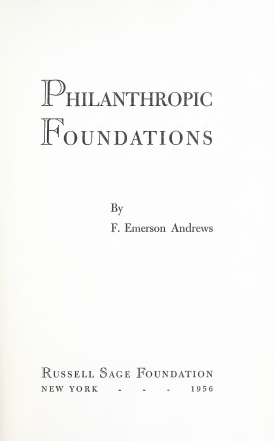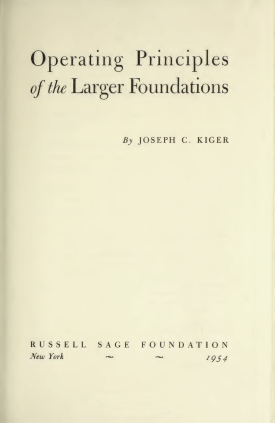Stark racial and ethnic and socioeconomic disparities exist with regard to who is contracting and dying from COVID-19. Minority and low-income groups, especially African Americans, are suffering disproportionately due to the pandemic. This raises questions about how social, economic, and policy factors affect the diffusion of disease and the outcomes for those infected.
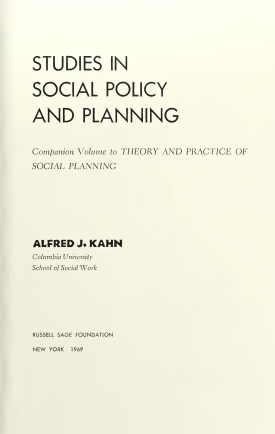
Studies in Social Policy and Planning
About This Book
From the preface: “The present work and a simultaneously published companion volume, Theory and Practice of Social Planning, share an overall goal. They would conceptualize and illustrate both specialized planning for social programs or fields and the social aspects of more general planning endeavors. Of particular concern here is the demonstration through use of a number of critical planning concepts often discussed only in the abstract. Author and reader, of course, are concerned with specific policies and with programs in specific fields. The studies presented – they are short monographs rather than true chapters – introduce issues and problems in a variety of high-priority areas. The specific rationale for selection and the manner in which each study is employed are discussed in the first chapter.” Topics include: the anti-poverty war, child delinquency, income security, city renewal, community psychiatry, and the delivery of social services at the local level.
ALFRED J. KAHN was professor of Social Policy and Planning at the Columbia University School of Social Work.
Download
RSF Journal
View Book Series
Sign Up For Our Mailing List
Apply For Funding
About This Book
This study deals with philanthropic foundations: their types, organization, boards of trustees, finances, professional staff, methods of operation, grant programs, areas of interest, reporting and publicity, and legal problems. It is based on extensive interviews, correspondence, questionnaires, examination of the literature in the field, and its author’s long experience with the Russell Sage Foundation and as consultant and adviser to other foundations and philanthropic organizations. It is designed to assistant foundations and to serve as an aid to prospective donors and their advisers in setting up such institutions.
F. Emerson Andrews was director of publications at the Russell Sage Foundation.
Download
RSF Journal
View Book Series
Sign Up For Our Mailing List
Apply For Funding
About This Book
A general history of large American philanthropic foundations from their creation in the nineteenth century to the larger development of such foundations in the twentieth century, this 1954 book is an attempt to provide a systematic, historical interpretation of twentieth-century foundation principles, planning, and operation.
Joseph C. Kiger taught history at the University of Alabama and Washington University, St. Louis.
Download
RSF Journal
View Book Series
Sign Up For Our Mailing List
Apply For Funding
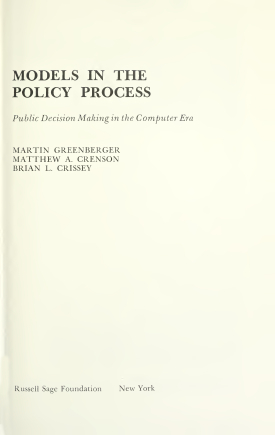
Models in the Policy Process
About This Book
How is the computer modeling of socioeconomic systems being used in government decision making? Is it providing the needed guidance? When it is not, why not? What is its future? How can it be made more useful for policy purposes? To address these questions, the authors investigated a multitude of different types of models being applied or developed in a wide variety of policy areas. They examined models of municipal operations, models of the national economy, and models of the world to detail the tensions between policy modeling and policymaking.
Download
RSF Journal
View Book Series
Sign Up For Our Mailing List
Apply For Funding
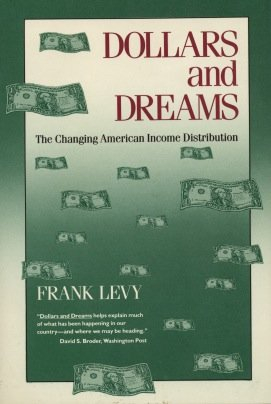
Dollars and Dreams
About This Book
A volume of the “Population of the United States in the 1980s” series commissioned by the National Committee for Research on the 1980 Census, which utilized data from the 1980 census to analyze trends in American life, Dollars and Dreams explores the dramatic changes in U.S. standard of living as wage stagnation and rising income inequality in the 1970s and 1980s began to undermine Americans’ traditional economic optimism. Levy examines various social and economic trends in income distribution since World War II, such as the rise of the suburbs, the fall of the steel industry, the baby bust, double-income families, single-parent households, income growth among the elderly, and deficits in Washington. His follow-up, New Dollars and Dreams: American Incomes and Economic Change, was published by the Russell Sage Foundation in 1999.
FRANK LEVY is Daniel Rose Professor of Urban Economics at the Massachusetts Institute of Technology.
Download
RSF Journal
View Book Series
Sign Up For Our Mailing List
Apply For Funding
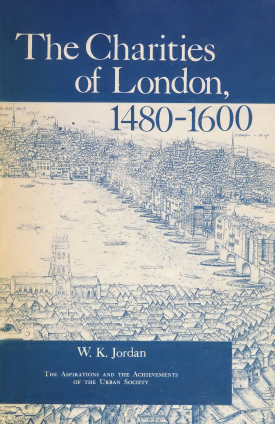
The Charities of London, 1480–1600
About This Book
An examination of philanthropic efforts in London between 1480 and 1660, exploring the urban social conscience and the power of urban aspirations at the time, as well as the origins of modern cultural institutions in England. Jordan documents the vast charitable system made in London and the social philosophy of the merchant aristocracy which controlled the city’s affairs.
Wilbur Kitchener Jordan was president of Radcliffe College and a historian specializing in sixteenth- and seventeenth-century Britain.
Download
RSF Journal
View Book Series
Sign Up For Our Mailing List
Apply For Funding
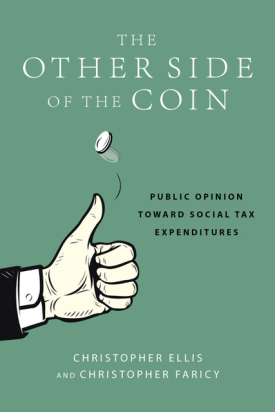
The Other Side of the Coin
About This Book
“Tax breaks are the largest component of the U.S. welfare state, more costly than Social Security and Medicare combined. Christopher Ellis and Christopher Faricy’s pathbreaking analysis illuminates the broad political appeal of these programs in a country wary of ‘big government’ and obsessed with ‘deservingness.’ It also highlights the social cost—in economic inequality and unrelieved poverty—of America’s peculiar reliance on a submerged welfare state.”
—Larry M. Bartels, May Werthan Shayne Chair of Public Policy and Social Science, Vanderbilt University
“The Other Side of the Coin is far and away the most in-depth study of American attitudes toward tax expenditures. The authors and that standard models of public opinion provide an incomplete understanding of these attitudes, demonstrating along the way that tax expenditures could be a fruitful pathway to generating support for redistribution.”
—Nathan J. Kelly, professor, Department of Political Science, University of Tennessee
Despite high levels of inequality and wage stagnation over several decades, the U.S. has done relatively little to address these problems – at least in part due to public opinion, which remains highly influential in determining the size and scope of social welfare programs that provide direct benefits to retirees, unemployed workers or poor families. On the other hand, social tax expenditures – or tax subsidies that help citizens pay for expenses such as health insurance or costs of college, and invest in retirement plans – have been widely and successfully implemented, and they now comprise nearly 40 percent of the spending of the American social welfare state. In The Other Side of the Coin, political scientists Christopher Ellis and Christopher Faricy examine public opinion towards social tax expenditures — the other side of the American social welfare state – and their potential to expand support for such social investment.
Tax expenditures seek to accomplish many of the goals of direct government expenditures, but they distribute money indirectly, through tax refunds or reductions in taxable income, rather than direct payments on goods and services or benefits. They tend to privilege market-based solutions to social problems such as employer-based tax subsidies for purchasing health insurance versus government-provided health insurance.
Drawing on nationally representative surveys and survey experiments, Ellis and Faricy show that social welfare policies designed as tax expenditures, as opposed to direct spending on social welfare programs, are widely popular with the general public. Contrary to previous research suggesting that recipients of these subsidies are often unaware of indirect government aid – sometimes called “the hidden welfare state” – Ellis and Faricy find that citizens are well aware of them and act in their economic self-interest in supporting tax breaks for social welfare purposes. The authors find that many people view the beneficiaries of social tax expenditures to be more deserving of government aid than recipients of direct public social programs, indicating that how government benefits are delivered affects people’s views of recipients’ worthiness. Importantly, tax expenditures are more likely to appeal to citizens with anti-government attitudes, low levels of trust in government, or racial prejudices. As a result, social spending conducted through the tax code is likely to be far more popular than direct government spending on public programs that have the same goals.
The first empirical examination of the broad popularity of tax expenditures, The Other Side of the Coin provides compelling insights into constructing a politically feasible—and potentially bipartisan—way to expand the scope of the American welfare state.
Christopher Ellis is professor of political science at Bucknell University.
Christopher Faricy is associate professor of political science at Syracuse University.
Download
RSF Journal
View Book Series
Sign Up For Our Mailing List
Apply For Funding
California currently faces a housing affordability crisis, with the rise in housing costs far outpacing increases in housing supply, and many families facing homelessness. This study will expand knowledge of the impact of the Housing Choice Voucher (HCV) program on individual outcomes in suburban and rural settings. To estimate the impact of the vouchers, the reserachers will leverage the random selection of HCV recipients through a lottery and linked administrative data from eight agencies providing services to low-income residents of Sonoma County.
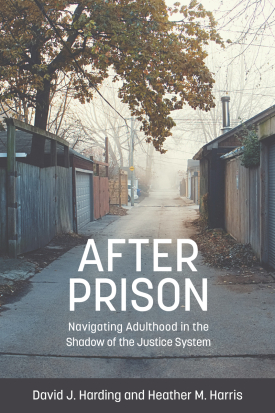
After Prison
About This Book
“By bringing together two strands of social science research that are usually treated separately—those on youth transitions to adulthood and incarceration—and by providing careful new data analysis, David J. Harding and Heather M. Harris make an important contribution to our understanding of incarceration, race and poverty in America. Their nuanced portrait of the long-term outcomes observed among incarcerated youth is insightful, and generates major implicationsfor both research and policy.”
—HARRY J. HOLZER, John LaFarge Jr. SJ Professor of Public Policy, Georgetown University
The incarceration rate in the United States is the highest of any developed nation, with a prison population of approximately 2.3 million in 2016. Over 700,000 prisoners are released each year, and most face significant educational, economic, and social disadvantages. In After Prison, sociologist David Harding and criminologist Heather Harris provide a comprehensive account of young men’s experiences of reentry and reintegration in the era of mass incarceration. They focus on the unique challenges faced by 1,300 black and white youth aged 18 to 25 who were released from Michigan prisons in 2003, investigating the lives of those who achieved some measure of success after leaving prison as well as those who struggled with the challenges of creating new lives for themselves.
The transition to young adulthood typically includes school completion, full-time employment, leaving the childhood home, marriage, and childbearing, events that are disrupted by incarceration. While one quarter of the young men who participated in the study successfully transitioned into adulthood—achieving employment and residential independence and avoiding arrest and incarceration—the same number of young men remained deeply involved with the criminal justice system, spending on average four out of the seven years after their initial release re-incarcerated. Not surprisingly, whites are more likely to experience success after prison. The authors attribute this racial disparity to the increased stigma of criminal records for blacks, racial discrimination, and differing levels of social network support that connect whites to higher quality jobs. Black men earn less than white men, are more concentrated in industries characterized by low wages and job insecurity, and are less likely to remain employed once they have a job.
The authors demonstrate that families, social networks, neighborhoods, and labor market, educational, and criminal justice institutions can have a profound impact on young people’s lives. Their research indicates that residential stability is key to the transition to adulthood. Harding and Harris make the case for helping families, municipalities, and non-profit organizations provide formerly incarcerated young people access to long-term supportive housing and public housing. A remarkably large number of men in this study eventually enrolled in college, reflecting the growing recognition of college as a gateway to living wage work. But the young men in the study spent only brief spells in college, and the majority failed to earn degrees. They were most likely to enroll in community colleges, trade schools, and for-profit institutions, suggesting that interventions focused on these kinds of schools are more likely to be effective. The authors suggest that, in addition to helping students find employment, educational institutions can aid reentry efforts for the formerly incarcerated by providing supports like childcare and paid apprenticeships.
After Prison offers a set of targeted policy interventions to improve these young people’s chances: lifting restrictions on federal financial aid for education, encouraging criminal record sealing and expungement, and reducing the use of incarceration in response to technical parole violations. This book will be an important contribution to the fields of scholarly work on the criminal justice system and disconnected youth.
DAVID J. HARDING is professor of sociology at the University of California, Berkeley.
HEATHER M. HARRIS is a research fellow at the Public Policy Institute of California.
Download
RSF Journal
View Book Series
Sign Up For Our Mailing List
Apply For Funding
Pagination
- Previous page
- Page 21
- Next page

